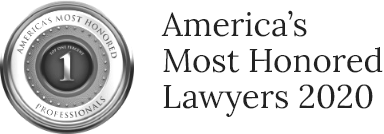Prosecutors are legally and ethically responsible for upholding justice, safeguarding the accused person’s rights and ensuring fair trials. Breaching this duty is prosecutorial misconduct. These actions can severely impact your case, potentially resulting in wrongful convictions, excessive sentencing or lasting damage to your reputation and future.
What Is Prosecutorial Misconduct?
Prosecutorial misconduct occurs when a prosecutor breaks the law or violates professional ethics during a criminal trial.
- Filing charges in bad faith: Bringing charges without a realistic hope of conviction, often as retaliation against whistleblowers, uncooperative witnesses or political rivals.
- Prejudicing potential jurors: Making inflammatory public statements that taint the jury pool.
- Concealing evidence: Withholding or hiding evidence that could prove your innocence or challenge the credibility of prosecution witnesses.
- Tampering with evidence: Altering, hiding, destroying or fabricating physical or digital materials to mislead the court or influence a case’s outcome.
- Presenting false testimony or evidence: Knowingly introducing inauthentic testimony or evidence or failing to correct false witness statements.
- Improper plea bargaining: Using false promises or misrepresentations to convince a defendant to plead guilty.
- Improper questioning: Asking damaging and suggestive questions without a legitimate basis.
- Entrapment: Using inappropriate investigative techniques to induce criminal conduct.
- Lying to the court: Misrepresenting facts or deceiving the judge.
- Witness intimidation: Pressuring witnesses to lie or discouraging them from aiding the defense.
- Jury discrimination: Striking potential jurors based on race, religion, gender or ethnicity.
- Improper jury arguments: Making statements that violate your constitutional rights to due process and a fair trial.
Improper Jury Arguments
Improper arguments to a jury are one of the most common forms of prosecutorial misconduct and can include:
- Expressing personal opinions about the case or your guilt
- Vouching for the prosecution’s case or witnesses
- Name-calling or attacking you or your defense attorney
- Misstating the law or mischaracterizing the defense
- Shifting the burden of proof onto you
- Appealing to juror sympathy or fear rather than focusing on the evidence
- Making arguments based on race, religion, gender or ethnicity
- Commenting on your right to remain silent
How Prosecutorial Misconduct Affects Your Case
When misconduct occurs, it can:
- Prejudice the jury against you
- Undermine the credibility of your defense
- Lead to wrongful conviction or excessive sentencing
- Violate your constitutional right to a fair trial
If proven, prosecutorial misconduct can result in a mistrial, the dismissal of charges or the granting of a new trial.
Proving Prosecutorial Misconduct
Establishing that prosecutorial misconduct has taken place is a complex process that requires a detailed investigation and legal expertise. Your defense attorney must:
- Identify specific acts that violated legal or ethical rules.
- Demonstrate how these acts affected the fairness of the trial.
- Provide evidence supporting the claim, such as court transcripts, witness statements or withheld evidence.
You Need an Experienced Defense Attorney to Protect Your Rights
Prosecutorial misconduct is a serious issue, but proving it is challenging. You need a skilled defense attorney who can:
- Review every aspect of your case for improper conduct
- File the appropriate motions to challenge misconduct
- Advocate for dismissal, a new trial or suppression of tainted evidence
- Protect your constitutional rights at every stage of the process
At the Law Firm of Salvatore Ciulla, we have decades of experience holding prosecutors accountable when they overstep their bounds. Sal Ciulla’s extensive knowledge of California criminal law and trial procedure ensures your defense is thorough, aggressive and focused on achieving the best possible outcome.
If you believe you’ve been a victim of prosecutorial misconduct, contact us for your confidential consultation. We will review your case in detail and fight to ensure you receive a fair trial.






